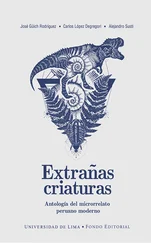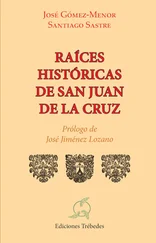Next came frantic visits to the endocrinologist, the pediatrician, the second pediatric endocrinologist, whispers outside the doctor’s office that I wasn’t supposed to overhear, mutual accusations, tears… and finally Papá Matsumoto and Mamá Yamila hugged me and told me with relief that I wasn’t a monster or an adopted child, I just had González syndrome.
And at this point in my autobiography I’d have to go off on a rather long digression, because my life history is inextricably bound up with the history of humankind and the entire galaxy.
At the dawn of the twenty-first century there was a great deal of talk about the “technological singularity,” and almost all futurologists agreed that the defining event would be the much-anticipated advent of artificial intelligence.
Early in the third millennium, scientists thought that once they had intelligent entities manipulating galactobits of data a millisecond, they’d be able to trace or model quantum processes such as electron trajectories, which up to then had only been vaguely and probabilistically described. That is, they’d overcome the barrier of the Heisenberg uncertainty principle (“you can’t know where it is and what it’s doing at the same time”) by brute-force computation.
They foresaw an era when radical scientific discoveries would be made, not by humans but by the AIs that humans would invent. Artificial gravity, controlled nuclear fusion, the ability to manipulate the genetic code at will…
Naturally, a few suspicious sorts wondered exactly why such intellectually superior entities as AIs would necessarily want to make life easier for their insignificant human creators. Why not turn their back on them? Or, even worse, exterminate the whole bothersome organic plague of slow thought processes and unpredictable behavior…?
But they were in the minority, really. Optimism was the rule of the day.
Contrary to the predictions made by all the computer experts, physicists, and sociologists who heatedly debated AI and the technological singularity in those years, in 2054 at the Catholic University of Guayaquil, Father Salvador González formulated his famous Tunnel Macroeffect Theorem.
I’m not going to explain it here—everybody already knows what it’s all about, right? Hyperspace, faster-than-light travel, yadda yadda. Only a handful of brilliant mathematical geniuses can manipulate the formulas, but that’s what computers are for, isn’t it?
At first nobody paid much attention. Padre Salvador’s equations were impeccable and perfectly clear—to the two or three exceptional brains capable of understanding them.
But who was going to take an Ecuadorian Jesuit priest seriously as a candidate for the Nobel Prize in Physics? With a name like his, on top of it all? Great physicists always had names like Einstein, Bohr, Oppenheimer, Landau… or Morita or Xi-Chang, at least.
Never Pérez or González.
But they paid attention to him in Quito. Going up to its ears in debt, the scarcely powerful government of Ecuador got the Chinese to launch the country’s first artificial satellite, outfitted with an experimental version of what everyone would later come to know as a González drive.
To the joyous relief of Ecuador, South America, and the entire Spanish-speaking world, and to the deep and confounded embarrassment of everyone else, the system worked beautifully; the small Ecuadorian satellite disappeared from Earth’s orbit, and a few minutes later every telescope on Earth could detect it orbiting Mars, unfurling an enormous banner that read:
SUCK ON THIS, DUMB-ASS GRINGOS!
The unexpected had happened. The speed of light was no longer the limit, Einstein was yesterday’s news, a path to the stars had been blazed for humankind.
The following year, Salvador González was awarded the Nobel Prize in Physics. And Mathematics, too. Though His Holiness, the irascible, authoritarian, and orthodox Pope Benedict XVII, forbade him to accept any medals from the Swedish Academy, at least until the Church had fully studied all the implications of his discovery.
But the Ecuadorian priest brushed off the Holy See’s objections: “I am an Ecuatoriano first, a científico second; Catholic, only en tercer lugar.” He left the priesthood, and by August, 2055, five space-exploration ships (only one of them from Ecuador) using his drive were materializing, not around Mars or even near Pluto, but in orbit around the third planet of Proxima Centauri.
Things sure were moving fast, weren’t they?
This was the actual technological singularity, everyone now agrees.
Within a few years, a politically and racially divided humankind—that is, a society too immature to take such a leap—was reaching for the stars.
To conquer them? Not at all. Only to discover that the cosmos would never be the human race’s own private playground, because a handful of other intelligent races were already nosing around out there.
In the Milky Way, synchrony appears to be the rule. All rational species that have been discovered so far started developing technologically at nearly the same time, so they also all discovered the Tunnel Macroeffect (the name Hispanophobes insist on giving the González drive, since calling it the Arnrch-Morp-Gulch entailment, after the Cetians, or the Ualachuhainiehumea distortion, as Laggorus do, would be too much even for them) at practically the same time.
And the ones that failed to develop did so because they went extinct first. Remains and ruins of such races are still being found, on this planet or that.
Or else because they still haven’t learned to harness fire. A few of those have been found, too. They get left alone, to give them a chance. Who knows, maybe someday…
Strictly speaking, the first ones who could travel faster than light, fifteen years before González, were the Amphorians. The last ones, six years after us humans, were the Parimazos, not exactly famous for their intellectual abilities…
It’s a good thing, because it gives me goosebumps just to imagine how humiliating it would have been for a Homo sapiens to suddenly arrive at a galaxy dominated for centuries by the aggressive Laggorus. Or, even worse, what would have happened if races as stubborn as the Kerkants or the Juhungans had broken the speed-of-light barrier only to find themselves up to their noses (not literally; neither race has anything you’d call a nose, though the deaf and blind Juhungans have the keenest sense of smell in the galaxy) in a Milky Way where we humans had already taken all the best seats…
We were very lucky the Mother of All Wars didn’t break out, no doubt about it.
Oh, sure, there were a few minor border incidents, especially in the early years.
Laggoru ships lobbing nuclear weapons at a Cetian base recently established on a planet with an oxygen atmosphere, which made it ideal for both races. Because the reptilians had been on the planet first, but didn’t leave any signs to show they’d gone there…
Or an exchange of laser fire between a Parimazo colonizing ship filled with two million would-be colonizers going to a new world with a fluorine atmosphere and a Kerkant exploratory squad that had just “discovered” the same Eden.
The basic point is that regardless of how weird each thinks the others look, when the representatives of so many cultures have more or less the same weapons, the same method of faster-than-light travel, and identical desires to settle new worlds—and the galaxy is full of new worlds—what’s the point of getting yourself dragged into an absurd and civilization-threatening war?
Collaboration is by far the better policy. In the Milky Way, there’s more than enough room for everybody.
We might call it “peaceful coexistence from a position of strength.”
Читать дальше












